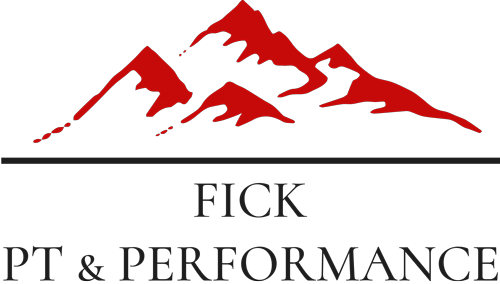As we dive into the vibrant summer season, sports fields across the country buzz with activity.
Whether it’s soccer, football, or a friendly game of baseball, the thrill of competition is undeniable.
However, this increase in sporting activity also raises concerns about concussions—a common and serious injury that can have lasting effects on athletes of all ages.
Recognizing this concern, especially among players and parents, you’ve taken an essential first step by seeking out this blog.
Here, you’ll find expert advice not just on the nature of concussions but also on effective strategies to prevent them, helping you enjoy your favorite sports safely this summer.
Understanding Concussions in Sport
Concussions, a type of traumatic brain injury, occur when a sudden, direct blow or bump to the head disrupts normal brain function.
Often seen in contact sports like football, hockey, and soccer, they can also occur in any activity where falls or collisions are common, including cheerleading and cycling.
Symptoms can range from headaches, dizziness, and confusion to more severe effects like memory disturbances and changes in coordination, impacting not only athletic performance but also daily life.
The risk of concussion rises during the summer, as more individuals engage in outdoor and team sports, making it crucial to understand and implement preventive measures.
How To Prevent Concussions In Sports? 6 Proven Tips
Education on Concussion Awareness
Educating athletes, coaches, and support staff about the signs and symptoms of concussions is vital for the safety of all participants in sports.
By implementing regular training sessions focused on concussion awareness, teams, and schools can significantly enhance their ability to respond effectively to injuries as they occur.
Understanding what to look for—such as confusion, dizziness, headaches, or changes in coordination—and knowing the immediate steps to take can mitigate further harm and facilitate quicker access to medical care.
This proactive approach ensures that everyone involved in the sport is prepared to act decisively, safeguarding the health and well-being of the athletes.
Enforce Proper Protective Gear
The use of helmets and other protective headgear is one of the most effective strategies to reduce the likelihood of concussions in sports.
Ensuring that all athletes wear certified, well-fitting protective equipment during both practices and competitive play is crucial.
Regular inspections and maintenance of this gear are also essential to ensure its effectiveness in absorbing impacts and protecting athletes.
By enforcing strict adherence to safety protocols regarding protective equipment, sports programs can create a safer environment that minimizes the risk of head injuries.
Strengthen Neck Muscles
Strengthening the neck muscles plays a critical role in reducing the force transmitted to the brain during sports-related impacts.
Incorporating exercises specifically designed to build neck and upper body strength can help athletes better absorb shocks and prevent concussions.
Exercises such as isometric neck exercises and shoulder shrugs should be integrated into athletes’ regular training routines.
These exercises not only fortify the muscles supporting the neck but also enhance overall upper-body strength, which is crucial for both injury prevention and athletic performance.
Teach Proper Techniques
Proper technique is key in preventing concussions and other injuries during sports.
Coaches have a responsibility to ensure that athletes understand and apply correct forms and methods, particularly in contact sports.
For instance, in football, teaching athletes how to tackle safely can prevent dangerous collisions. In soccer, correct heading technique is essential to avoid undue force on the head and neck.
Regular drills that focus on these techniques help athletes internalize proper behaviors, reducing the likelihood of concussions resulting from improper form.
Limit Contact in Practices
Limiting physical contact in practice sessions is another effective measure to prevent concussions.
By modifying drills to reduce direct impacts—such as using tackling dummies in football or practicing with softer balls for headers in soccer—coaches can decrease the frequency and severity of impacts athletes experience during training.
This strategy helps to maintain high levels of skill development while minimizing the risks associated with repetitive, high-impact actions.
Implement Good Sportsmanship Rules
Promoting good sportsmanship and respectful conduct on the field plays a significant role in reducing the risk of concussions and other injuries.
Establishing clear, enforceable rules that discourage aggressive play and penalize inappropriate actions can create a safer, more positive sporting environment.
Cultivating a team culture that values safety and respect ensures that all players understand the importance of playing responsibly, which not only protects them but also enhances the quality of the game.
By focusing on these detailed strategies, sports organizations, and teams can effectively reduce the incidence of concussions and ensure a safer environment for all athletes.
Fick PT & Performance, Your Safeguard Against Concussions In Sports
At Fick PT & Performance, we believe that prevention is the key to safe sports participation.
Educating athletes, coaches, and families on concussion prevention is central to our mission. We offer specialized assessments and training programs tailored to minimize the risk of concussions in all sports.
If concerns about concussion risks are holding back an athlete in your life, or if you’re seeking effective strategies to safeguard against brain injuries, we’re here to help.
Contact us today to learn how our expert guidance can keep every athlete playing safely and confidently.
Call us at (720) 480-2866 or visit our website to secure a consultation.
Let’s work together to keep the game safe for everyone!
Other FREE Resources To Prevent Concussions In Sports
Read Our Blog – The Role of Physical Therapy in Post-Injury Recovery
Follow Us on Instagram

